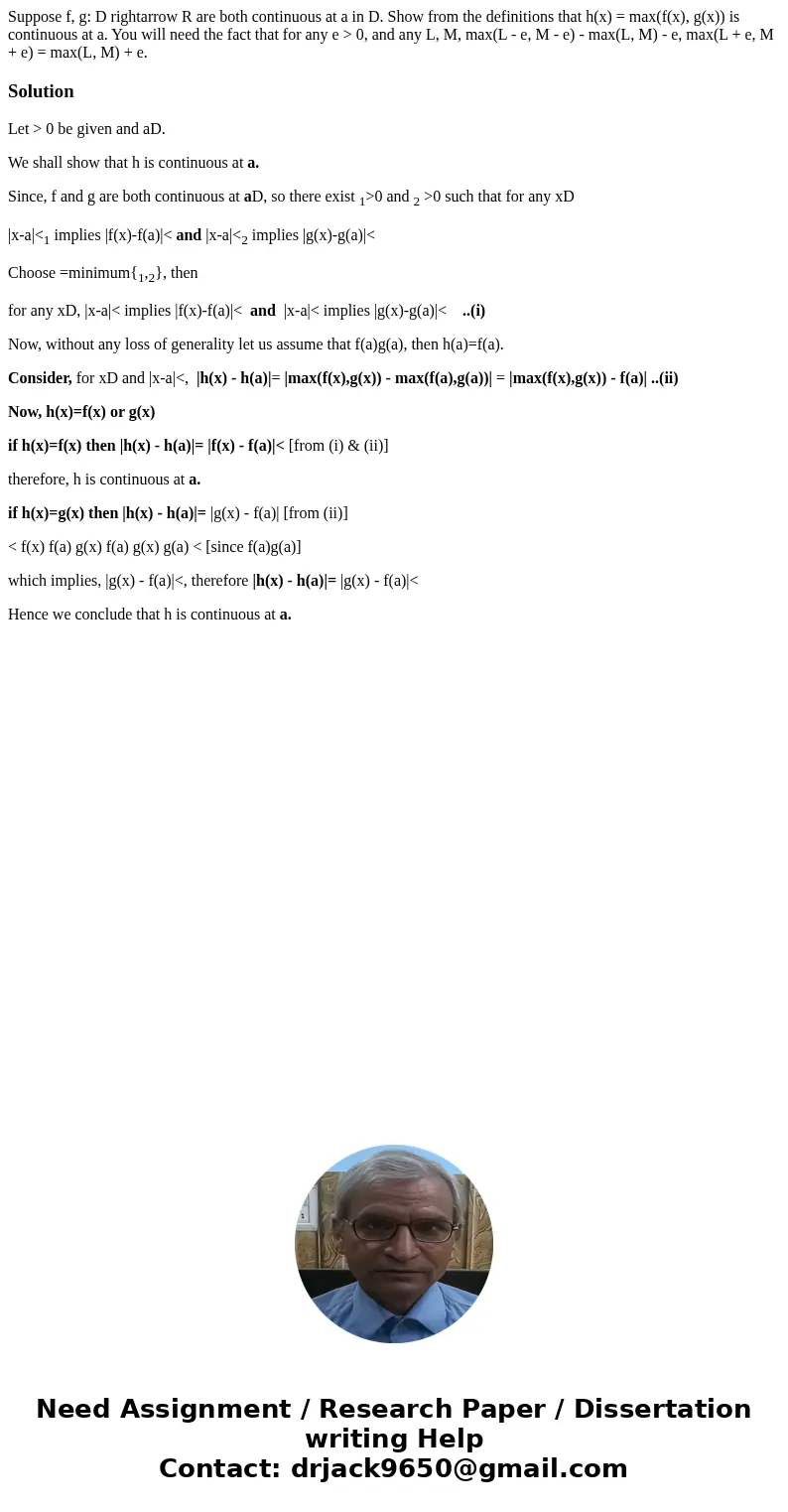Suppose f g D rightarrow R are both continuous at a in D Sho
Solution
Let > 0 be given and aD.
We shall show that h is continuous at a.
Since, f and g are both continuous at aD, so there exist 1>0 and 2 >0 such that for any xD
|x-a|<1 implies |f(x)-f(a)|< and |x-a|<2 implies |g(x)-g(a)|<
Choose =minimum{1,2}, then
for any xD, |x-a|< implies |f(x)-f(a)|< and |x-a|< implies |g(x)-g(a)|< ..(i)
Now, without any loss of generality let us assume that f(a)g(a), then h(a)=f(a).
Consider, for xD and |x-a|<, |h(x) - h(a)|= |max(f(x),g(x)) - max(f(a),g(a))| = |max(f(x),g(x)) - f(a)| ..(ii)
Now, h(x)=f(x) or g(x)
if h(x)=f(x) then |h(x) - h(a)|= |f(x) - f(a)|< [from (i) & (ii)]
therefore, h is continuous at a.
if h(x)=g(x) then |h(x) - h(a)|= |g(x) - f(a)| [from (ii)]
< f(x) f(a) g(x) f(a) g(x) g(a) < [since f(a)g(a)]
which implies, |g(x) - f(a)|<, therefore |h(x) - h(a)|= |g(x) - f(a)|<
Hence we conclude that h is continuous at a.

 Homework Sourse
Homework Sourse